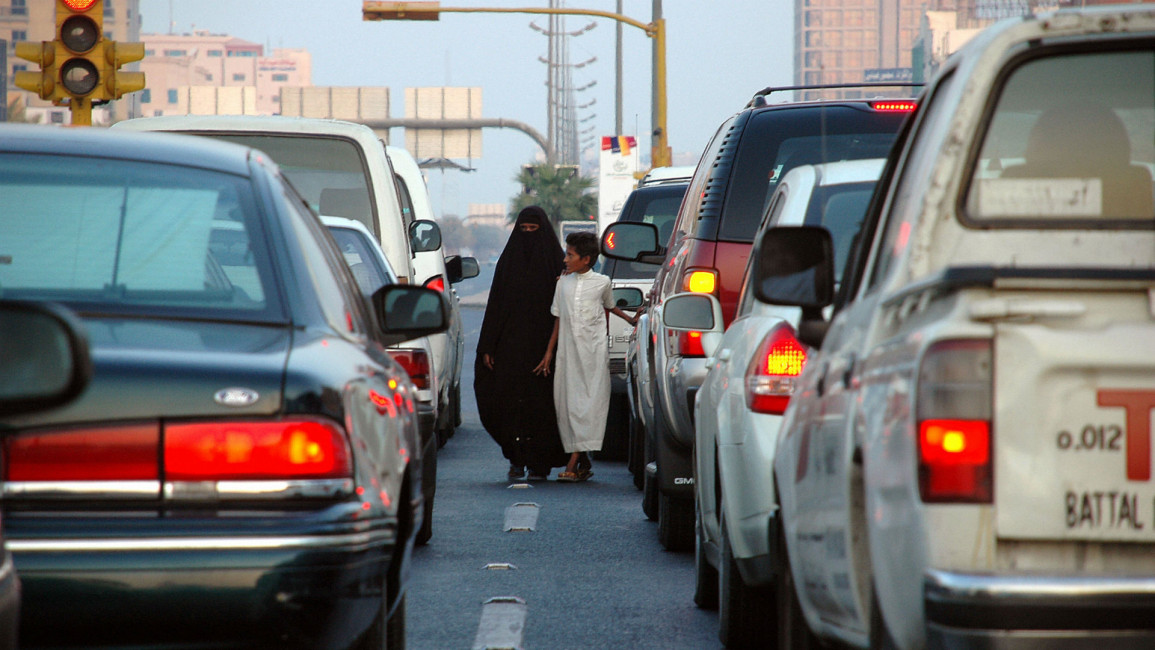
Saudi journalist begging outside country's anti-begging authority given money
A Saudi journalist conducted an odd social experiment this month; pretending to be a beggar woman, he managed to collect thousands of Saudi Riyals - even outside the country's body in charge of arresting beggars.
"I did it out of curiosity; to take a break from the mundane and lift the veil from the mysterious world of beggars in the kingdom," wrote Abd al-Aziz al-Ghamdi in the daily al-Madina.
The Saudi journalist bought an abaya, the traditional black loose over-garment that all Saudi women must wear, a pair of black gloves and women's shoes - and hit the streets of Jeddah in disguise.
| The office was in a deep slumber. I sat on the building's front steps and begged for hours to see if I would be taken in. Instead the office workers gave me money - Abd al-Aziz al-Ghamdi |
"I was amazed to find out that by sitting outside a busy mosque on a Friday for 15 minutes I could pull in the equivalent of a civil servant's monthly salary," Ghamdi said.
Fully-veiled and masking his voice he began his investigation by heading to one of most frequented cash machines in the city to seek out charity.
"I repeated 'may God protect your children' to passersby for a few hours. Some of them gave me a riyal or two and one man gave me five - I collected a decent amount," the journalist said.
By the end of his first day on the streets he claimed to have had picked up 3,000 riyals ($800).
The following day, Ghamdi changed his location to a busy intersection, where many elderly Yemeni and African beggars congregate with their children - and soon found that women carrying babies were raking in the most change.
"I decided to ask one of the women if I could borrow a child from her. To my amazement, she agreed and told me it would cost me 40 riyals an hour for a toddler and 80 for a baby," he said.
Ghamdi said he discovered the best spot to ask for alms was outside mosques in busy neighbourhoods - and on one afternoon he was able to fill his handbag with 1,200 riyals ($320) during the two afternoon prayers.
The journalist also decided to try his luck outside the office of the government's anti-begging authority, which is in charge of arresting and deporting foreign beggars in the kingdom - where begging is strictly prohibited.
"The office was in a deep slumber. I sat on the building's front steps and begged for hours to see if I would be taken in," Ghamdi said. "Instead, the office workers gave me money."
But the life is not easy. During the investigation, the journalist had rocks thrown at him by young boys and that one man attempted to take him home in exchange for money.
Beggars can be seen all over oil-rich Saudi Arabia, especially during the holy month of Ramadan.
A recent study revealed that many beggars are either Umrah or Hajj visa over-stayers or undocumented workers who illegally cross into the kingdom.
"We don't have enough employees to conduct anti-begging campaigns," Omar Al-Eid, director of Riyadh's anti-begging authority, recently told al-Arabiya. "Another obstacle is the absence of cooperation on part of mosque imams who are supposed to prevent people from begging at mosques."
In July, Saudi police arrested 343 beggars during the holy month of Ramadan.




